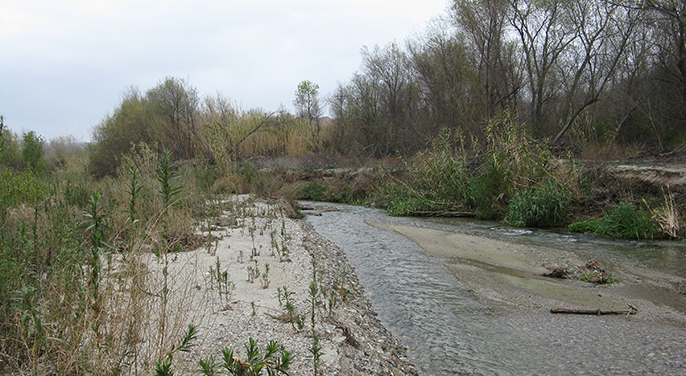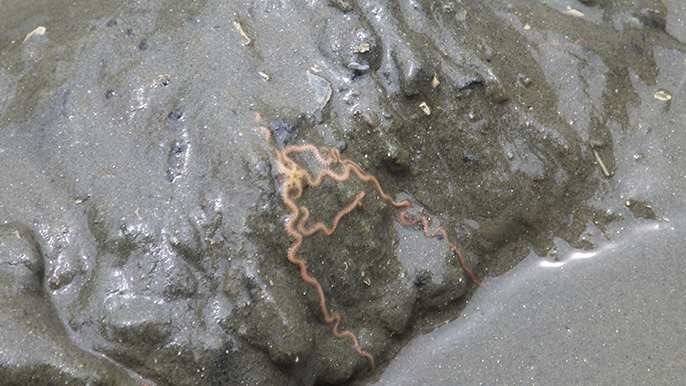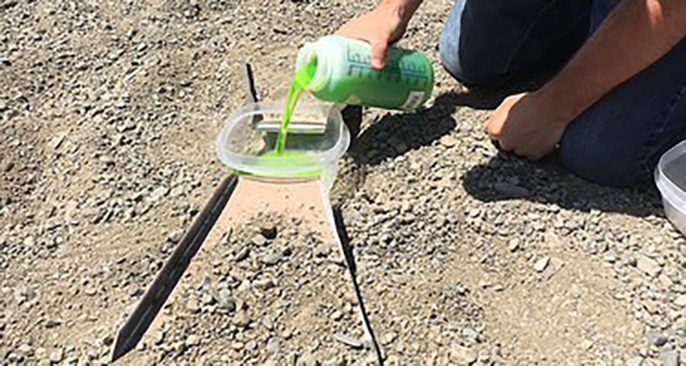Indices of biotic integrity are environmental scoring tools that transform raw biological data collected from a water body site into a simple numerical score of overall ecological condition. California’s water-quality management community uses index scoring tools to track and compare the condition, or biotic integrity, of water bodies statewide. Through these systematic assessments of ecological health, managers evaluate compliance with discharge permits, set conservation priorities, and evaluate effectiveness of mitigation and restoration projects.
SCCWRP is an international leader in developing and adapting biological indices for standardized application across California’s marine and freshwater environments. SCCWRP has developed approaches that enable California water-quality managers to use index scores as the standard unit of measure for tracking the ecological condition of water bodies statewide. These indices provide accurate measures of condition based on site-specific benchmarks appropriate for each water body, ensuring the tools can be used in California’s diverse environmental settings.

Managerially relevant environmental scoring tools
Since the early 1900s, researchers have recognized that certain biological species – ranging from algae and bottom-dwelling invertebrates to fish larvae to certain physical-habitat characteristics – serve as particularly reliable indicators of overall ecosystem condition. The indices of biotic integrity developed by SCCWRP are based on these biological indicators of water body condition:
- Marine indices: SCCWRP’s earliest work developing biological indices dates back to the 1970s in marine habitats. SCCWRP co-developed the indices to provide Southern California’s coastal management community with a relevant method for distilling enormous bioassessment data sets into easy-to-understand and easy-to-compare numerical scores. In the 1990s, SCCWRP and its partners developed an index of biotic integrity to score the condition of sediment-dwelling invertebrate communities to depths of 200 meters. This invertebrate-based Benthic Response Index became one of three lines of evidence used in the sediment quality triad, a framework co-developed by SCCWRP for evaluating sediment quality across much of Southern California’s continental shelf. In 2009, the State Water Resources Control Board adopted this framework to assess sediment quality in coastal bays and estuaries across California. More recently, SCCWRP has worked to adapt an index known as the AZTI Marine Biotic Index (AMBI) to compare the condition of biological communities in nearshore environments worldwide.
- Freshwater indices: While SCCWRP’s first freshwater indices of biotic integrity could be applied only to streams in specific geographic regions of California, SCCWRP in recent years has focused on building indices that are applicable to streams and other water bodies statewide. A key challenge in developing statewide indices is accounting for California’s natural diversity – including elevation, geology and climate – and how it influences the composition of biological communities found in these environments. SCCWRP has addressed this challenge by developing statistical models that dynamically account for natural environmental variability. Today, SCCWRP-developed freshwater indices such as the California Stream Condition Index (CSCI) and Algal Stream Condition Index (ASCI) set appropriate expectations for biological diversity in individual streams, ensuring these indices can be used across California’s geographically diverse watersheds. The CSCI and ASCI have been incorporated into routine monitoring of wadeable streams across Southern California, including the Southern California Stormwater Monitoring Coalition’s cyclical Regional Watershed Monitoring Program, and are expected to help form the technical backbone of a proposed California biological integrity and biostimulatory substances policy intended to govern the health of wadeable streams statewide.

Bringing consistency to the interpretation and synthesis of results
As SCCWRP works to expand the utility of indices of biotic integrity within California’s water-quality management community, SCCWRP and its partners are focused on developing interpretation frameworks to help managers synthesize and integrate multiple index scores for a given site across time and space, especially when indices present contradictory or inconsistent assessments. By exploring the interconnectedness of bioassessment-related data, SCCWRP’s goal is to develop a more holistic, integrated understanding of ecosystem functioning – one that is greater than the sum of its parts. This understanding will help managers extract more value and insights from bioassessment data going forward.


